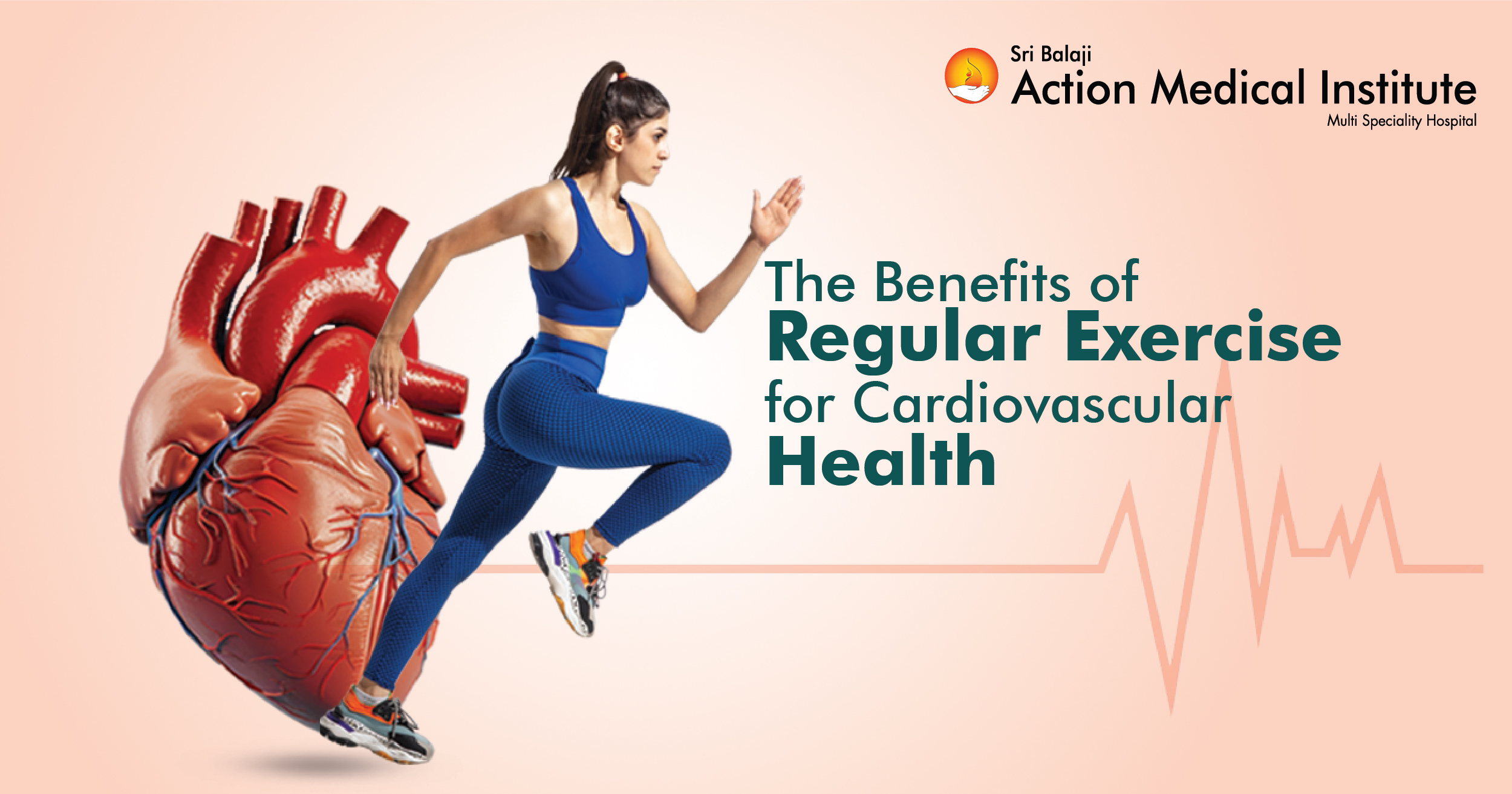The Benefits of Regular Exercise for Cardiovascular Health
Caring for one’s heart is essential in achieving good health since the heart is considered the fundamental organ in the human body; exercising is also a vital component on the way to a healthy life. This article goes into great detail about the numerous positive effects that any organised physical programme has on the heart and why exercise should be integrated into your lifestyle.
Understanding Cardiovascular Health
Cardiovascular health can be described as the overall state of the heart and the blood vessels of the human body, which make up the cardiovascular system. It circulates blood all over the body to supply oxygen and nutrients to the tissues and organs, as well as transport waste products to the organs of excretion. Some of the resultant effects related to cardiovascular illness include heart disease, stroke and hypertension.
Advantages of Exercise on the Cardiovascular System

1. Enhanced Heart Function
The exercise enhances the muscle tissues of the heart so that blood circulation is enhanced in the body. As for the circulatory system, the blood does not need to be pumped through the body with much force; therefore, it does not increase the chances of getting a disease of the heart. Aerobic exercises like brisk walking, running, swimming, cycling, etc., are useful in improving the function of one’s heart.
2. Lower Blood Pressure
Exercise facilitates the reduction of blood pressure since it aids in the enhancement of heart and blood vessel abilities. It is a well-established fact that high blood pressure, or hypertension, is one of the most significant risk factors for heart disease and stroke.
3. Lowered Chance of Developing Heart Disease
Coordinated exercise decreases the likelihood of having CAD, which is coronary artery disease. This lowers the level of body fat, known as ability, boosts the level of high-density lipids, and lowers the risks of fat deposit on the walls of arteries. When fatty deposits build up in the arteries, the condition becomes atherosclerosis, which results in the narrowing of the arteries and eventual blockage of blood supply.
4. Weight Management
Reducing obesity and being physically fit is absolutely crucial when it comes to risks related to the cardiovascular system. Exercise proves useful in tackling calories and ensuring that a person does not suffer from obesity to cater to heart disease. Thus, choosing exercise as the way to lose weight together with the appropriate diet is effective.
5. Improved Blood Circulation
Exercise also increases the size of blood vessels as well as the efficiency of the blood vessels in transporting blood throughout the body. Circulation enhances the flow of blood to all bodily tissues, and hence, they are well supplied with oxygen and nutrients, which are central to their health.
6. Reduced Inflammation
Chronic inflammation is connected with various cardiovascular diseases. Studies have attributed a decrease in the level of inflammatory markers in the body to the benefits of regular physical activity. Thus, a decrease in inflammation can help postpone the development of cardiovascular diseases and promote the strengthening of the heart muscle.
7. Enhanced Mental Health
Psychological conditions are strongly connected with cardiovascular issues. Physical activity has a way of exercising good feelings; this is because it produces endorphins, which is a natural way of lifting moods. It also helps decrease stress, anxiety and depression, all of which are known risk factors for heart disease.
8. Improved Blood Sugar Control
Regular exercise is a means of controlling blood sugar levels because it aids in increasing insulin sensitivity. Bad management of blood glucose results in diabetes, while a dangerous complication of diabetes is heart disease. Exercise should be performed frequently; aside from regulating blood sugar levels, it also prevents the heart issues that diabetes brings.
9. A Strengthened Immune System
Physical exercise is also instrumental in boosting one's immunity, and this implies that the body becomes less prone to attacks from diseases and other ailments.
10. Increased Longevity
Research has revealed that people who exercise use their hearts optimally, thus enhancing their life spans. Physical exercise decreases the probability of developing chronic diseases, such as heart disease, and helps to promote an increased life span.
Ways to Make Physical Activity Part of Your Lifestyle
Start Slow: If you are a beginner at exercising, then allow yourself to engage in exercises such as walking or very light yoga. Ease up on your routines and assume that you will be adjusting the vigour and length of your exercise regimens.
Find Activities You Enjoy: Ideally, pick the kind of exercises that you like, and in this way, you will routinely practice the exercises. It could be dancing, swimming, hiking or playing a ball game. It is easier for people to stick to the exercises they enjoy most.
Set Realistic Goals: To remain motivated to achieve goals, one should set realistic fitness goals. Acknowledge the small wins and where you have come from, then set the new bar of expectation higher than the last.
Make it Social: Plan to exercise with friends, or even find a fitness group, this way, your workout will be more fun, and you will stick to your schedule.
Stay Consistent: Regularity is what matters most when it comes to exercising, if the aims of the exercise are to be realised. The recommended amount of physical activity is moderate-intensity aerobic activity for at least 150 minutes per week or vigorous-intensity aerobic activity for at least 75 minutes per week, along with muscle-strengthening activities on two or more days per week.
To Sum Up
It is an essential fact that exercise can significantly contribute to the improvement and sustainability of the heart’s health. It has a wide array of potential benefits, including enhancing the heart’s functioning, lowering blood pressure, controlling weight, and boosting mental health. Regular exercise or physical activity should be included in your daily schedule because it can effectively lessen the risks of having cardiovascular diseases as well as enhance the quality of life.






